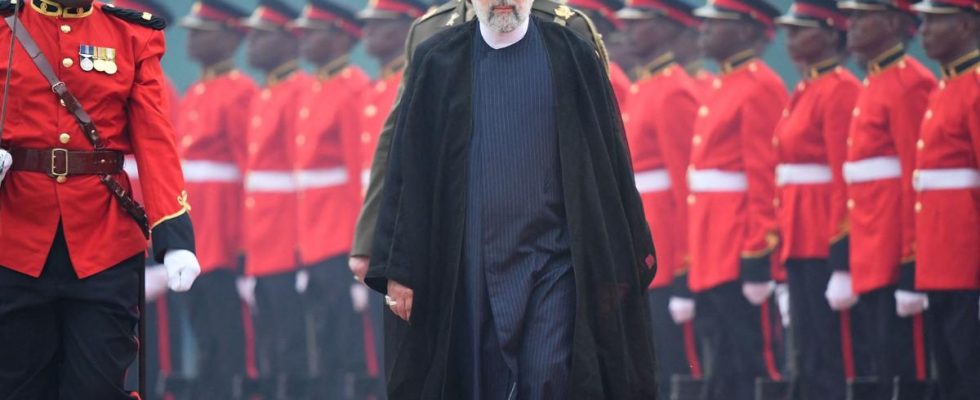The morality police had been created by the Supreme Council of the Cultural Revolution under ultra-conservative President Mahmoud Ahmadinejad. SIMON MAINA / AFP
This announcement comes ten months after the death of Mahsa Amini, arrested by the morality police last September for not wearing the hijab.
Iranian police announced on Sunday July 16 that they had restored patrols to punish more and more women for not wearing the veil in public places, ten months after the death of Mahsa Amini.
“From today, the police will, through car and foot patrols, warn and punish people who unfortunately disobey orders and continue to disobey the dress code.“Warned police spokesman Saïd Montazeralmahdi, quoted by the Tasnim agency.
Read alsoIn Iran, the youth between disobedience and frustration in the face of the regime’s violence
This announcement comes ten months after the death, on September 16, 2022, of the 22-year-old Iranian Kurd Mahsa Amini, arrested by the morality police who accused her of having violated the dress code of the Islamic Republic, imposing in particular on women the wearing the veil in public.
punishments
In recent days, photos and videos, the authenticity of which could not be independently verified by AFP, have been posted on social media showing female police officers in chadors admonishing and arresting women not wearing the veil. “No, the morality police have not been dismantled in Iran“, declares on Twitter the journalist of the Point Armin Arefi, author ofA spring in Tehran (Plon).
The reform-minded Shargh daily reported on Sunday that four women had recently been sentenced to “take psychology courses», «clean hospitalsand had beenbanned from driving for two yearsafter being found guilty.
The death of Mahsa Amini had triggered a vast protest movement with demonstrations in several cities in October and November before declining. Several hundred people, including members of the security forces, were killed and thousands arrested. Seven men were executed for their involvement in this movement.
Called into question by the demonstrators, the morality police had largely disappeared from the streets in recent months. And more and more women were going out with their heads uncovered, especially in Tehran and the big cities.
“Culture of decency”
Since the beginning of the year, the authorities have taken a series of initiatives, ranging from the closure of businesses, in particular restaurants, to the installation of cameras in the streets to track down those who defy the ban.
At the same time, the judiciary and the government in May proposed a bill called “Support for the culture of hijab and chastity” in order to “protect society” And “strengthen family life“. This text, which sparked a lively debate, suggests strengthening the sanctions, particularly financial ones, against “anyone removing their veil in public places or on the internet“.
Read alsoIran ready to “make efforts” to free the last four Frenchmen accused of espionage
The morality police had started their patrols in 2006 after being created by the Supreme Council of the Cultural Revolution under ultra-conservative President Mahmoud Ahmadinejad (2005-2013), to “spread the culture of decency and hijab“.
Two months before the start of the protest, the ultra-conservative president Ebrahim Raïssi had called in July 2022 for the mobilization of “all institutions to enforce the veil law“, stating that “the enemies of Iran and Islam wanted to undermine the cultural and religious values of the society“.

